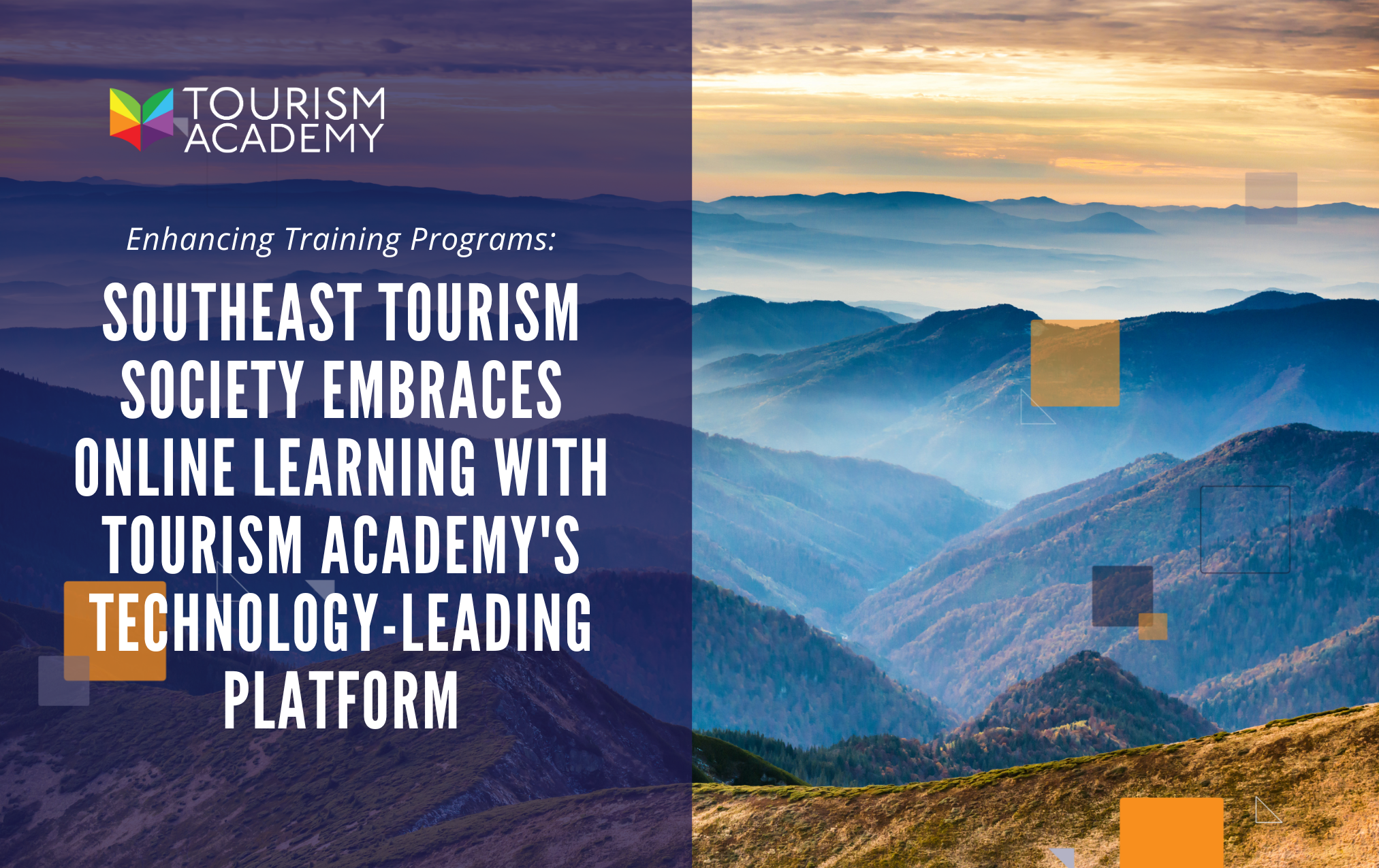
Enhancing Training Programs: Southeast Tourism Society Embraces Online Learning with Learn Tourism's Technology-Leading Platform
The Southeast Tourism Society (STS) is a leading organization dedicated to promoting and advancing the tourism industry across the southeastern region of the United States. Recognizing the need to adapt to changing times and provide innovative training opportunities for its members, STS decided to transition its training programs to an online format. This case study explores STS's successful collaboration with the Learn Tourism's technology-leading Learning Experience Platform (LXP) to revolutionize its training initiatives.
Background:
Before the transition to online learning, STS relied primarily on in-person workshops and seminars to deliver training to its members. However, the COVID-19 pandemic presented significant challenges and necessitated a shift towards remote learning solutions. STS sought a reliable partner to implement an engaging and effective online training platform to ensure the continued growth and development of its members.
Partner Selection:
The STS team conducted extensive research to identify a suitable online learning platform that aligned with their requirements. After careful consideration, they selected the Learn Tourism's LXP due to its reputation for providing technology-leading solutions specifically tailored for the tourism industry. The LXP offered an intuitive interface, interactive features, and comprehensive analytics, making it the ideal choice for STS's training programs.
Platform Implementation:
Working closely with the Learn Tourism's implementation team, STS seamlessly migrated its existing training materials and programs onto the LXP. The transition involved digitizing course materials, optimizing content for online consumption, and integrating multimedia elements to enhance engagement. The platform's user-friendly interface allowed STS to create a structured learning environment that catered to different learning styles and preferences.
Enhanced Learning Experience:
With the Learn Tourism's LXP, STS transformed its training programs into an immersive and interactive learning experience. The platform offered various features such as video lectures, quizzes, discussion forums, and gamification elements, enabling participants to actively engage with the material and each other. STS also leveraged the LXP's social learning capabilities, facilitating networking and knowledge sharing among members, thus fostering a vibrant community within the platform.
Personalization and Adaptive Learning:
The LXP's advanced analytics capabilities empowered STS to gather valuable insights into member engagement and performance. Leveraging this data, STS customized learning paths and recommendations based on individual interests and skill levels. By providing personalized content suggestions, the platform catered to diverse learning needs and ensured participants received targeted training relevant to their roles and aspirations.
Increased Accessibility:
Moving training programs online eliminated geographic barriers and allowed STS to expand its reach beyond the southeastern region. Participants from various locations could access training materials at their convenience, increasing accessibility and inclusivity. Additionally, the LXP's mobile compatibility further extended the reach, enabling members to learn on-the-go through smartphones and tablets.
Continuous Improvement:
STS and the Learn Tourism maintained an ongoing partnership to enhance the training experience continually. Feedback mechanisms, such as surveys and user ratings, helped identify areas for improvement and implement necessary updates. The platform's agile nature enabled seamless updates, ensuring that STS's training programs remained cutting-edge and up-to-date with industry trends.
Results and Benefits:
The collaboration between STS and the Learn Tourism yielded remarkable results. By embracing online learning, STS experienced increased participation rates, improved member satisfaction, and a broader network of industry professionals connected through the platform. Furthermore, the shift to online training allowed STS to reduce costs associated with physical event logistics, making the programs more cost-effective and sustainable in the long run.
Conclusion:
Through its partnership with the Learn Tourism and the adoption of their technology-leading Learning Experience Platform, STS successfully transformed its training programs into a dynamic online learning experience. The transition to online training not only enabled STS to adapt to the challenges posed by the COVID-19 pandemic but also provided an opportunity to leverage the benefits of digital learning in enhancing member engagement, expanding accessibility, and fostering professional growth within the tourism industry.